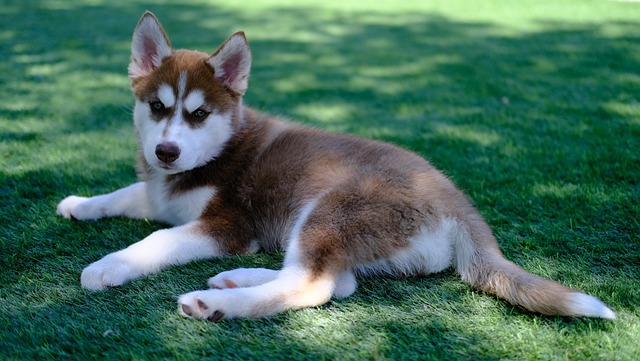
How do i train my dog to be obedient?
Watching your dog dart across the park ignoring your calls isn’t just frustrating—it can put them at risk near busy streets or public spaces.
The moment your new puppy stumbles into your home, those big eyes and wobbly legs might make training feel like a distant thought. But experts agree—starting potty training early sets the stage for a lifetime of good habits. Most pups are ready to begin around 8 to 12 weeks old, when their bladders and brains start to coordinate just enough to hold it for short stretches.
Watch for the clues: circling, sniffing, or sudden stops mid-play. These are your puppy’s way of saying they need to go. Take them outside immediately—same spot each time, if possible. The familiar smells will help them associate that area with potty time. A little praise or a tiny treat right after they finish? That positive reinforcement sticks better than any scolding ever could.
 In many cities across Europe and North America, there are strict rules about pet waste in public spaces. Failing to clean up after your puppy can land you with fines, and repeated accidents in shared areas like apartment hallways might even violate lease agreements. Starting training early helps avoid those awkward run-ins with neighbors or local authorities. It’s not just about being polite—it’s about keeping sidewalks, parks, and playgrounds safe for everyone.
In many cities across Europe and North America, there are strict rules about pet waste in public spaces. Failing to clean up after your puppy can land you with fines, and repeated accidents in shared areas like apartment hallways might even violate lease agreements. Starting training early helps avoid those awkward run-ins with neighbors or local authorities. It’s not just about being polite—it’s about keeping sidewalks, parks, and playgrounds safe for everyone.
Puppies have tiny bladders, so consistency is key. Take them out first thing in the morning, after meals, naps, and playtime, and right before bed. Even if they don’t go each time, the routine teaches them to expect opportunities to relieve themselves outside. If an accident happens indoors—and it will—avoid yelling. Just clean it up quietly with an enzyme cleaner to remove the scent, so they won’t be tempted to go there again.
Some breeds catch on faster than others, but age matters more than size. A Chihuahua puppy and a Great Dane puppy might both need to go out every 30 minutes to an hour at 10 weeks old. As they grow, you can gradually stretch the time between breaks. By 6 months, most pups can hold it through the night, but every puppy is different—be patient with their pace.
End each training session on a positive note, even if there were a few missteps. Potty training is a journey, not a race. With time, consistency, and a little understanding of your puppy’s needs, you’ll both get the hang of it. And remember—those early struggles? They’ll be forgotten once you’re strolling through the park, confident your well-trained pup knows just where to go.

Watching your dog dart across the park ignoring your calls isn’t just frustrating—it can put them at risk near busy streets or public spaces.

New puppy owners often find themselves rushing to clean up accidents before they set in, and that’s where puppy pad training becomes a game-changer.

If you've noticed your dog's waistline disappearing and your veterinarian has mentioned those few extra pounds, your first instinct might be to simply reduce the amount of food in their bowl.

Training a dog to use a designated spot indoors isn’t as daunting as many new owners fear, but it does take consistency and an understanding of your pet’s needs.

That moment of dread on a walk is all too familiar for many new dog owners. You see another dog approaching down the sidewalk of your neighborhood

If the sight of another dog on your neighborhood walk makes your heart sink as your own dog erupts into a frenzy of barking and lunging, you're not alone.